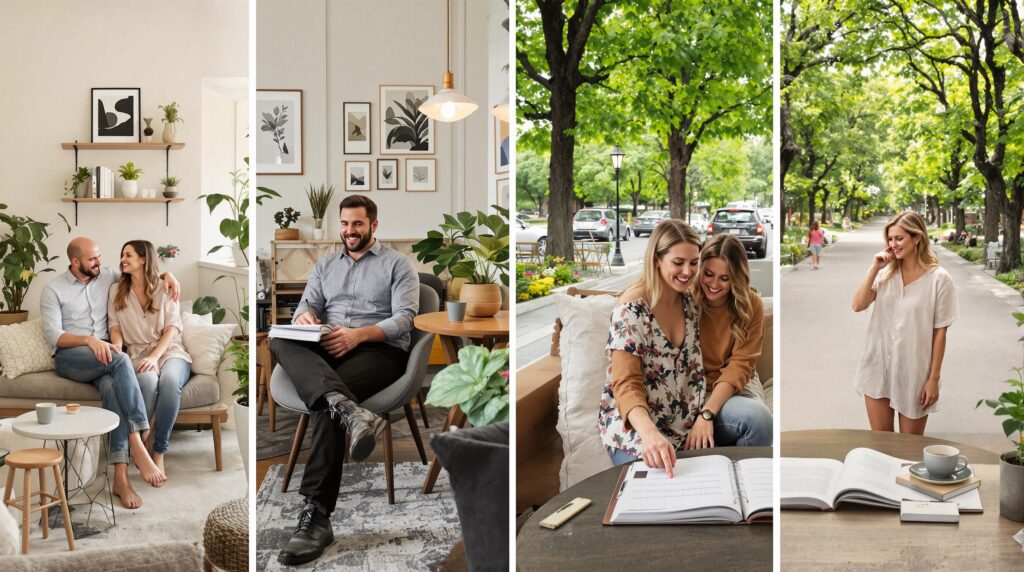
Building a strong relationship takes effort, understanding, and patience—especially when one or both partners are on the autism spectrum. Neurodiverse couples often face unique challenges, but with the right tools and mindset, these relationships can also offer deep connection and growth. Here are some practical ways to nurture understanding, communication, and closeness in a neurodiverse partnership.
Communicate Openly and Clearly

Good communication is the backbone of any healthy relationship, but it’s especially important when partners experience the world differently. In neurodiverse relationships, being direct and clear helps prevent misunderstandings. If you’re on the spectrum, you might find literal language easier to process, so it helps when both partners say what they mean without relying on hints or assumptions.
If talking about feelings is tough, try using visual aids or writing things down. Simple drawings, charts, or even communication apps can make it easier to share thoughts and feelings. These tools help ensure both partners feel heard and understood, which builds trust and emotional closeness.
If you’re looking for more support, a therapist who understands neurodiverse relationships can help you develop these skills. If you’re in California, consider reaching out for a virtual consultation to see how therapy can support your unique partnership.
Understand and Respect Each Other’s Needs

Every relationship benefits from empathy, but it’s especially important to understand what makes your partner comfortable or uncomfortable. Sensory sensitivities or social triggers can be more pronounced for people on the autism spectrum. These might include certain lights, sounds, or social situations that cause stress or anxiety.
Take time to talk about these triggers with your partner. When you both know what to expect, it’s easier to support each other and avoid unnecessary stress. Respecting boundaries—whether they’re about personal space, emotional needs, or social situations—helps both partners feel safe and valued.
Create Structure and Routine

Consistency can be comforting, especially for those on the spectrum. Having a predictable routine helps reduce anxiety and creates a sense of security. Visual schedules, calendars, or planning apps can make daily life feel more manageable.
At the same time, it’s helpful to build in some flexibility. Life doesn’t always go as planned, so being able to adapt without too much stress is important. Try to include shared activities in your routine, like cooking together, taking walks, or setting aside time to talk. These moments help strengthen your connection.
Handle Conflict with Care

Disagreements happen in every relationship. The key is to approach conflict with clear, direct communication and a willingness to listen. If a conversation gets too heated, agree to take a break and come back to it later. Focus on solving the problem together, rather than blaming each other.
Sometimes, working with a therapist who specializes in neurodiverse couples can make a big difference. They can offer strategies tailored to your needs and help you navigate tough conversations more effectively.
Invest in Therapy—Together and Individually

Therapy can be a valuable resource for both partners. Couples therapy designed for neurodiverse relationships can help you understand each other better, improve communication, and build intimacy. Individual therapy is also helpful for personal growth, managing anxiety, or working through sensory sensitivities. When both partners invest in themselves, the relationship becomes stronger.
Virtual therapy is a convenient option for many, especially in California. Meeting with a therapist from home can make it easier to focus on your growth as a couple.
Practice Empathy and Patience

Change takes time, and every relationship has its ups and downs. Celebrate small wins and remember that setbacks are part of the journey. Be patient with each other’s progress and set realistic expectations. Empathy—truly listening and trying to see things from your partner’s perspective—goes a long way. Validate each other’s feelings, even if you don’t always see things the same way. Learning about each other’s experiences and needs helps you grow together.
Celebrate Your Differences

Every person brings unique strengths to a relationship. Maybe one partner has a keen eye for detail, while the other is great at thinking outside the box. Appreciating these differences can make your partnership stronger and more balanced.
Make time for shared experiences, whether it’s a favorite hobby, exploring new places, or celebrating milestones together. These moments create positive memories and reinforce your bond.
Final Thoughts
Neurodiverse relationships can be deeply rewarding when both partners commit to understanding, patience, and growth. Therapy—whether as a couple or individually—can provide the support and tools you need to thrive together.
If you’re in California and want to explore therapy options tailored to neurodiverse couples, consider reaching out for virtual services. With the right support, you can build a relationship rooted in empathy, respect, and genuine connection.
